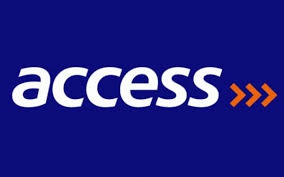Nigeria’s Access Bank plans to pursue organic growth in Ghana rather than mergers or acquisitions after the central bank raised the minimum capital requirement for lenders in the West African country, its group chief executive said on Tuesday.
Ghana’s central bank in September raised the minimum capital required for banks threefold to 400 million cedis ($92 million) as part of measures to ensure financial stability, its spokesman said. Lenders have until the end of 2018 to comply.
The previous capital requirement for banks and new entrants in Ghana was 120 million cedis.
Access Bank’s group CEO Herbert Wigwe said the recapitalisation would strengthen Ghana’s banking sector and that customers will move to lenders that have met the requirement, potentially helping the company’s Ghanaian business to gain market share.
Access Bank owns 91 percent of Access Bank Ghana, which has 230.67 billion naira ($699 million) in total assets.
“We have no interest whatsoever in doing any form of combination in Ghana. We think it will be safer and better for us to grow organically,” Wigwe said on an analyst call.
Access Bank posted a 5.7 percent rise in nine-month pretax profit to 72.91 billion naira last week, with the Ghana unit contributing 3.88 billion naira.
Shares in Access Bank, up 67 percent this year, fell 0.2 percent on Tuesday to 9.86 naira.
The company completed an initial public offering for its Ghana subsidiary in March, selling a 6 percent stake for $6 million.
The group said at the time that it wanted to bolster the capital base of Access Bank Ghana in the event of a deterioration of the Ghana economy.
The new government of Nana Akufo-Addo has vowed to restore financial stability and fiscal discipline to stabilise the economy. Ghana has been dogged by high public debt and budget deficits, forcing it to sign a credit programme with the IMF in 2015.
Business News of Tuesday, 7 November 2017
Source: reuters.com
Nigeria’s Access Bank eschews M&A in Ghana growth strategy
 Access Bank owns 91 percent of Access Bank Ghana, which has $699 million in total assets
Access Bank owns 91 percent of Access Bank Ghana, which has $699 million in total assets












